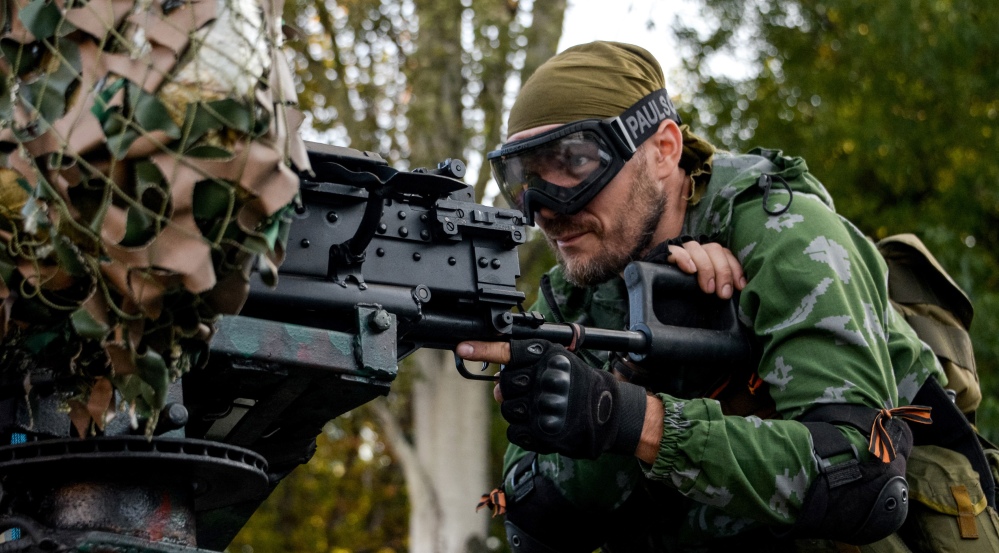For the first time since Russia annexed Crimea six months ago, the European Union has surprised President Vladimir Putin instead of the other way around. Despite a cease-fire in eastern Ukraine, and despite Russia’s apparent withdrawal of troops from the region, the EU decided Thursday morning to impose new sanctions on Russia, starting Friday.
As perverse as it may sound, the sanctions make sense – and the United States intends to follow suit. Yet the odd timing highlights the extraordinary slowness of the decision-making process in the EU, a committee of 28 democracies all but incapable of responding to anything effectively, especially a nimble autocrat from Russia. This EU tardiness isn’t just ineffectual, it’s dangerous.
The purpose of the new measures, promised weeks ago, was to deter Putin from escalating his military campaign in eastern Ukraine. Then Putin escalated his military campaign in eastern Ukraine, sending Russian troops over the border. Before the EU could get the sanctions in place, Putin engineered a cease-fire. If only to show that they were something more than marionettes in Putin’s puppet theater, EU leaders thought they had to follow through on their sanctions anyway.
Putin may have himself to blame for tipping the EU’s internal debate against him. By reducing natural gas deliveries to Poland and Slovakia this week, Russia made it clear that it still plans to escalate its effort to turn Ukraine into a failed state.
Russia’s state gas company, Gazprom, has cited maintenance work as the cause of the stoppages. That’s hard to believe. Poland and Slovakia happen to be the two countries that are reversing pipeline flows to pump natural gas from the EU into Ukraine, which Russia cut off from supply in June. The goal was to ensure that Poland doesn’t have enough gas to sell to Ukraine – which is exactly what happened. Slovakia has been warned.
The turning of the spigot is an early sign of a winter energy war to come. If Ukraine gets gas from neither Russia nor the EU, it will have to let its people freeze or siphon off supplies that go through Ukraine to Gazprom’s other clients in Europe. Either result would serve Russia’s political purposes. So the EU’s determination to show it will not – this time, at least – be reduced to irrelevance is laudable. But is it wise?
Throughout this conflict, Putin has demonstrated that he has more leverage, and is more willing to use it, than either the EU or the U.S. He hardly needs the pretext of these sanctions to break the cease-fire, which remains a real possibility. Still, by being so slow to respond to Putin’s aggression, the EU has needlessly raised the risk that he will again interfere in Ukraine. That realization should jolt the bloc into a quicker and more effective way of making and carrying out big foreign policy decisions.
In the meantime, the EU is right to hold firm. The sanctions are designed not to affect daily events in Ukraine as much as to make clear to Putin the long-term cost of using force to reassemble Russia’s former empire.
The new measures, which are expected to make it harder for Russia’s big banks and state-owned oil and defense companies to raise capital, should stay in place until Putin has carried out all of the essential elements of the cease-fire. That means pulling out all Russian troops and equipment, and agreeing to send a force of international peacekeepers, of sufficient size and strength to disarm militias and seal the border, to eastern Ukraine. Only then can talks begin for a genuine political settlement.
Send questions/comments to the editors.



Success. Please wait for the page to reload. If the page does not reload within 5 seconds, please refresh the page.
Enter your email and password to access comments.
Hi, to comment on stories you must . This profile is in addition to your subscription and website login.
Already have a commenting profile? .
Invalid username/password.
Please check your email to confirm and complete your registration.
Only subscribers are eligible to post comments. Please subscribe or login first for digital access. Here’s why.
Use the form below to reset your password. When you've submitted your account email, we will send an email with a reset code.